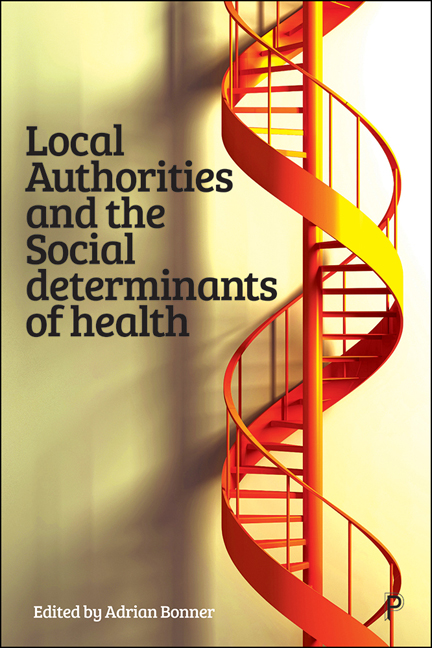Book contents
- Frontmatter
- Dedication
- Contents
- List of Figures, Tables and Boxes
- Notes on Contributors
- Acknowledgements
- Foreword
- Summary
- Introduction: Key Sociopolitical Changes Affecting the Health and Wellbeing of People
- Part I Health, Social Care and Community Wellbeing
- Part II The Role of Local Authorities in Promoting Health and Wellbeing in the Community
- Part III Local Authority Commissioning
- Part IV The Third Sector
- Part V Socio-Economic Political Perspectives
- Conclusion
- Appendix: COVID-19 Timeline
- Index
1 - Deaths of Despair – Causes and Possible Cures
Published online by Cambridge University Press: 25 March 2021
- Frontmatter
- Dedication
- Contents
- List of Figures, Tables and Boxes
- Notes on Contributors
- Acknowledgements
- Foreword
- Summary
- Introduction: Key Sociopolitical Changes Affecting the Health and Wellbeing of People
- Part I Health, Social Care and Community Wellbeing
- Part II The Role of Local Authorities in Promoting Health and Wellbeing in the Community
- Part III Local Authority Commissioning
- Part IV The Third Sector
- Part V Socio-Economic Political Perspectives
- Conclusion
- Appendix: COVID-19 Timeline
- Index
Summary
Introduction
Increasing life expectancy is an accepted indicator of human progress in a country. Except in times of war, high income countries have experienced many decades of steady growth in life expectancy. Such growth is largely associated with improving social and economic conditions as well as advances in health care. The long-term trend in life expectancy suggests that the determinants of health and wellbeing were improving. However, there are increasing reports that recent years have seen a slowing in life expectancy growth in many countries. Some countries, including the United States (US), the United Kingdom (UK) and several other European countries, are reporting an actual decline in life expectancy over the past few years since 2014 (Ho, 2018).
This chapter considers the possible causes of this sudden change in the pattern of growth in life expectancy. It is likely that a change in the pattern of the social determinants of health underlies this abrupt deterioration. Simply, the authors consider the possibility that social change has produced a decline in the wellbeing of populations in high income countries. They examine how wellbeing is defined and how it is created, and the methods by which societies can improve wellbeing in their citizens are considered.
What has caused the decline in life expectancy?
Some studies have attributed this relative decline in life expectancy to increasing mortality among the elderly from heart disease, Alzheimer's and respiratory disease. Some have suggested that this increase in deaths might be associated with serious influenza outbreaks (Ho, 2018; Kwong et al, 2018). However, increases in premature deaths in the US and the UK have also been seen in younger age groups.
The causes in younger people have been identified as drug overdoses, suicide, alcohol-related problems and external factors, such as violence and accidents. This pattern of mortality strongly suggests that underlying social and economic issues are responsible for this worrying trend (Leyland et al, 2007; Case and Deaton, 2015). Economic insecurity has been suggested as an important influence on what has been described by Case and Deaton (2015) as an increase in ‘deaths of despair’.
- Type
- Chapter
- Information
- Local Authorities and the Social Determinants of Health , pp. 17 - 32Publisher: Bristol University PressPrint publication year: 2020



